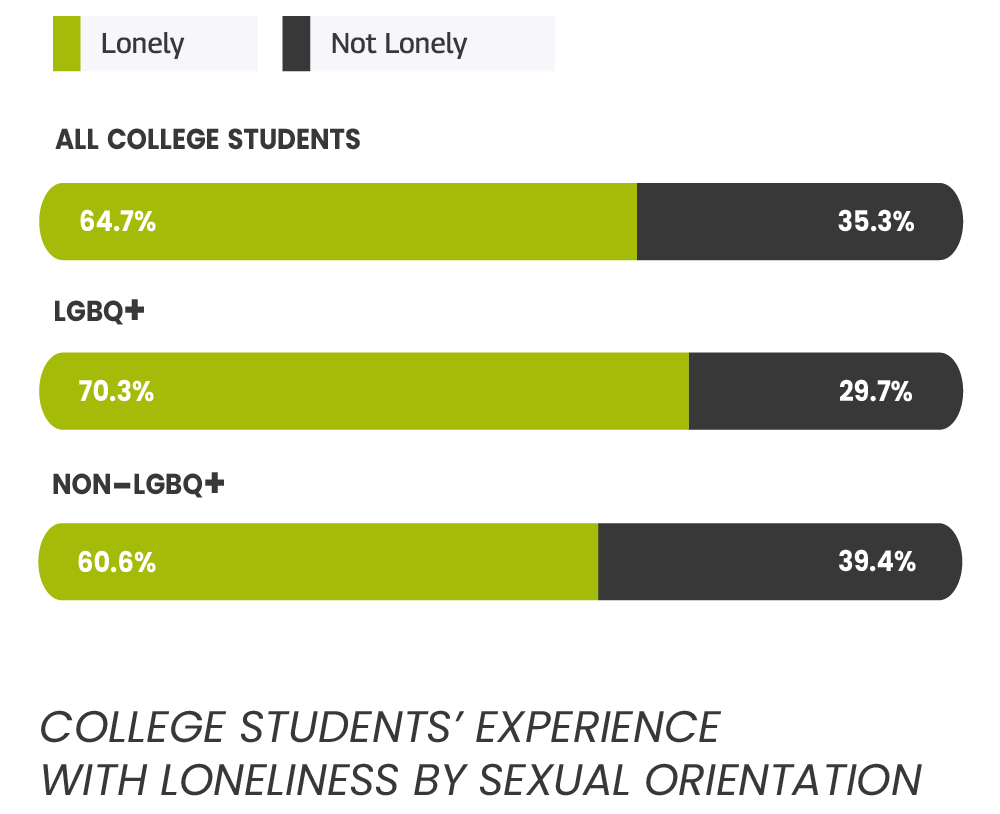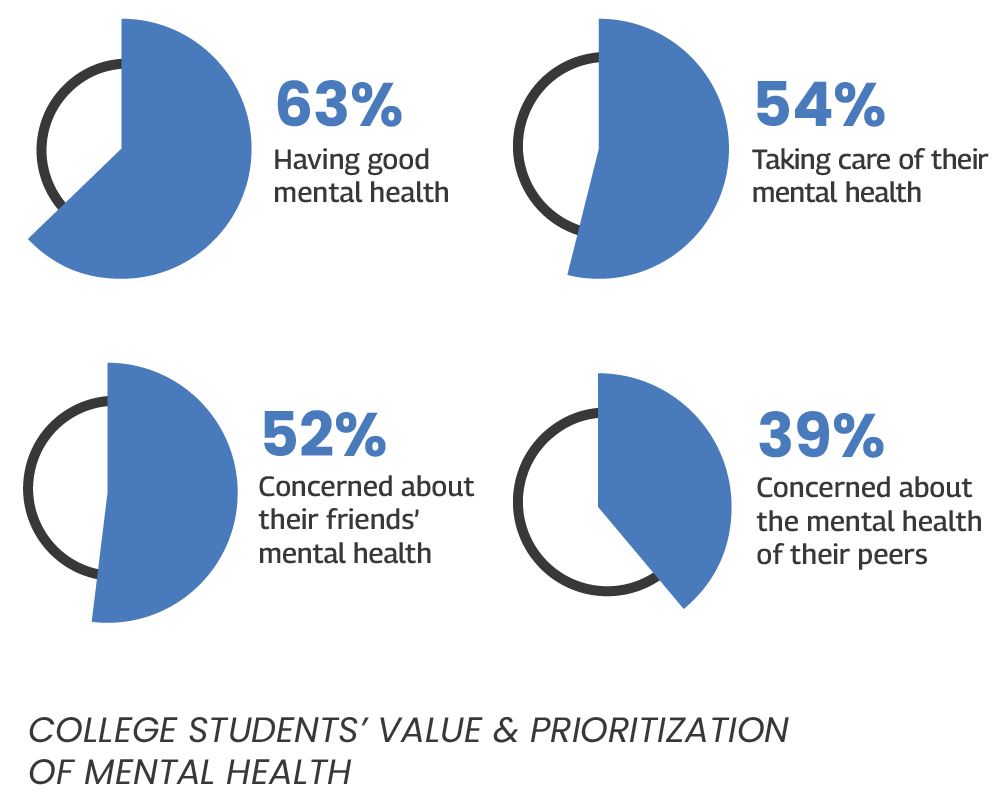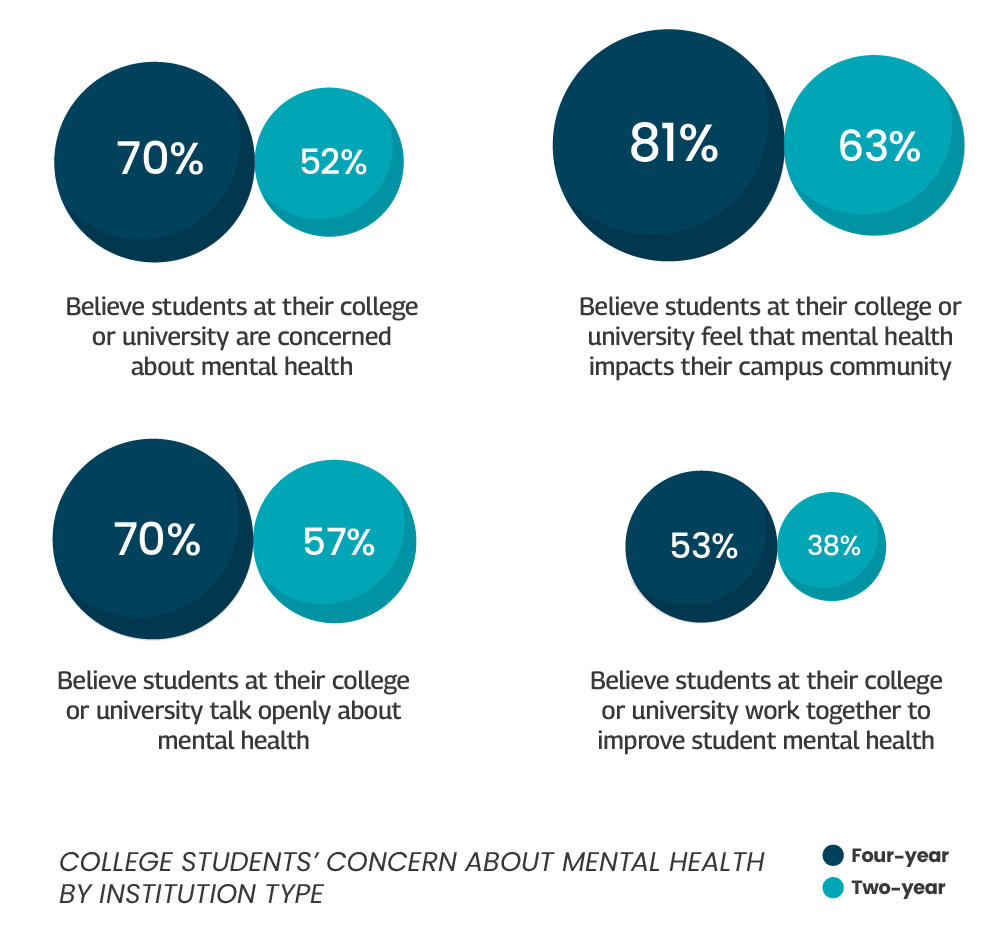Implications for Practice
Address the Epidemic of Loneliness, Especially for LGBQ+ Students
Loneliness is one of the top predictors of psychological distress and negative mental health outcomes. With many college students continuing to experience loneliness, and its predictive relationship on psychological distress, colleges and universities are uniquely positioned to support and address student mental health needs.
Tailor Mental Health Resources to Students’ Needs and Identities
Since having good mental health is important to college students, there are many opportunities to build, expand and grow campus-wide programs, initiatives, and policies to support student mental health. Currently, many mental health programs are created to address mental health concerns at the individual-level, such as in-person and virtual counseling services, online self-help programs, and campus self-care events, and these initiatives continue to be valuable.
Equip Students with Skills to Support Each Other
College students are interested and willing to support their friends and help them take care of their mental health. Programs aimed at the interpersonal-level, such as formal or informal peer support programs, emotional literacy programs, peer coaching programs, and virtual peer communities, may help students gain the knowledge and skills to adequately support their friends without feeling like they have to be an expert to help.
Encourage Student Voices and Advocacy in Decision-Making
College students understand and experience the unique ways mental health impacts their communities. On college and university campuses, students can be and are fundamental drivers of change.
This report analyzes findings from a sample of nearly 1,100 college and university students collected via an online survey by Active Minds and TimelyCare in February 2024.





